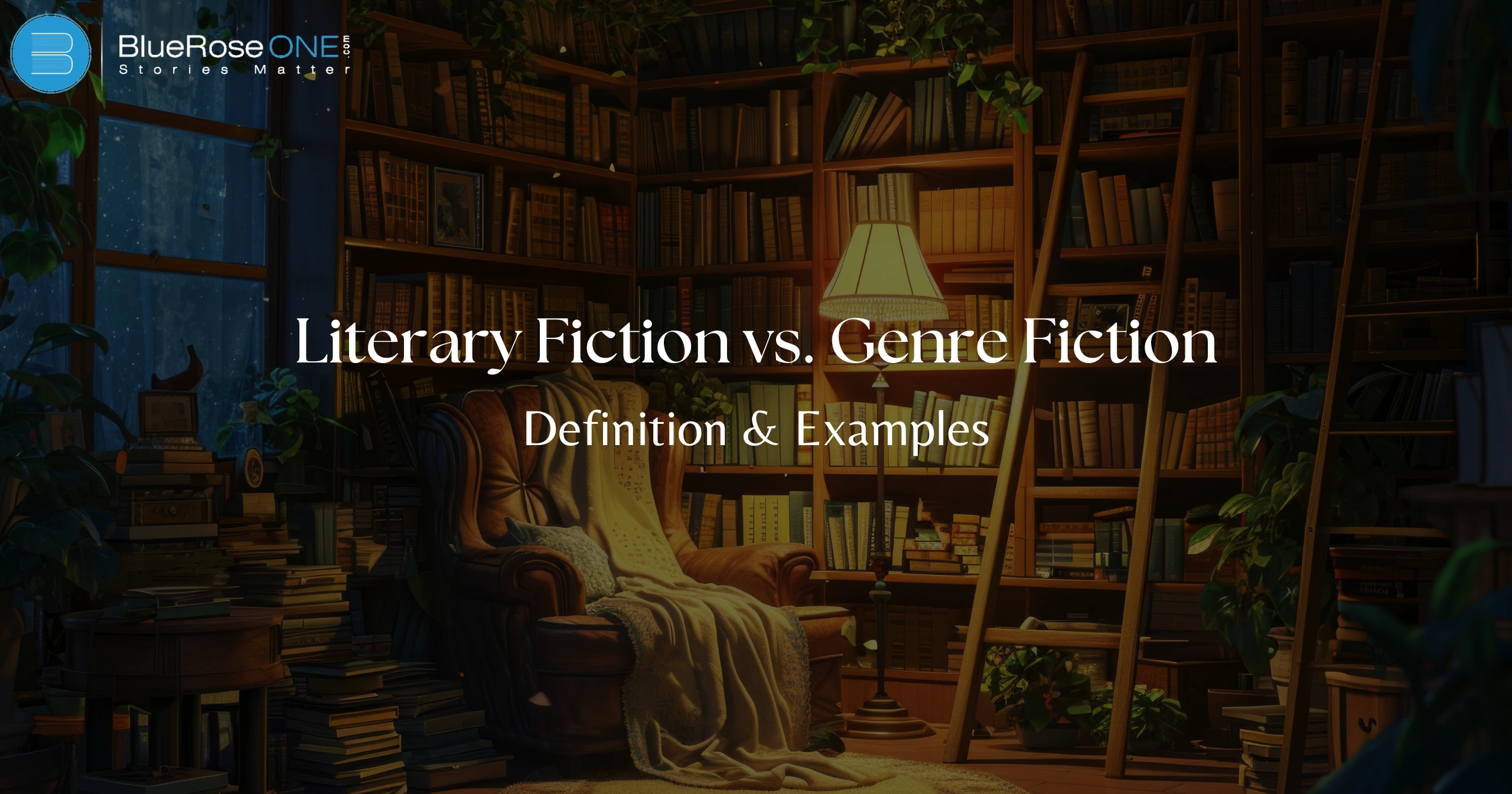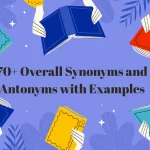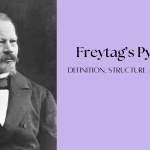When it comes to literature, readers are frequently divided into two groups: those who appreciate the complex layers of literary fiction and those who prefer the thrilling narratives of genre fiction. But what distinguishes these two types? Let’s look at their definitions, major traits, and instances to better comprehend their distinguishing features.
What Is Literary Fiction?
Literary fiction is a form of narrative that emphasizes complex characters, rich concepts, and thought-provoking ideas over fast-paced plots or specific genres. It frequently delves into human emotions, relationships, and societal challenges, with a heavy focus on great writing and creative expression.
Literary fiction, as opposed to genre literature, which falls into certain categories such as mystery or romance, aims to provide readers with a meaningful, reflecting experience rather than just entertainment.
Examples include Harper Lee’s To Kill a Mockingbird and F. Scott Fitzgerald’s The Great Gatsby.
Focus on Complex Themes
Literary fiction frequently explores complex themes concerning the human condition, societal issues, or philosophical questions.
These themes delve into deeper meanings, such as morality, identity, or emotional challenges, and are intended to elicit thought and reflection in readers.
Literary fiction, as opposed to genre literature, which focuses on narrative and amusement, examines life’s nuances via rich storytelling and multi-layered characters. Examples include Harper Lee’s To Kill a Mockingbird, which explores themes of justice and discrimination.
You may also read: 5 Act Structure: Definition, Examples and More
Character Driven Narratives
Character-driven storylines prioritize character development, emotions, and decisions over action or plot twists. These stories delve into difficult relationships, emotional struggles, and moral quandaries, with a focus on depth rather than speed.
This strategy is commonly used in literary writing, allowing readers to form profound connections with the characters and their adventures. For example, in Harper Lee’s To Kill a Mockingbird, Scout’s moral awakening takes center stage and shapes the narrative through her ideas and experiences.
Examples of Literary Fiction
- To Kill a Mockingbird by Harper Lee: A masterpiece that addresses racial injustice and moral growth.
- Beloved by Toni Morrison: A deeply moving exploration of slavery and its generational impact.
You may also like: 10 Best Books on Writing Every Aspiring Authors Should Read
What Is Genre Fiction?
Genre fiction is defined as stories written for specific categories or genres, such as romance, mystery, science fiction, fantasy, or thriller.
These works aim to entertain readers by adhering to the norms and clichés of their genre, such as a happily-ever-after conclusion in romance or a dramatic chase in crime fiction.
Genre fiction is often plot-driven and promotes storytelling above deep concepts, making it accessible and popular with a large audience. Examples are Pride and Prejudice (romance) and The Hunger Games (dystopian).
Plot Driven Stories
Plot-driven stories concentrate on the sequence of events that carry the story ahead. Action and external conflict are central to these novels, with twists and pacing frequently taking precedence over substantial character development.
Plot-driven stories, which are common in genre fiction such as thrillers, mysteries, and fantasy, seek to capture readers through suspense, excitement, or adventure.
While the characters play important roles, their inner lives are subordinate to the plot, making these novels more fast-paced and intriguing for action-oriented readers.
You may also like: What is Thriller: Definition, Examples and More
Categorization into Subgenres
Each sub genre has unique traits. For instance:
- Science fiction explores futuristic or scientific concepts.
- Romance focuses on relationships and emotional arcs.
Examples of Genre Fiction
- The Hunger Games by Suzanne Collins: A dystopian adventure blending survival and social critique.
- The Notebook by Nicholas Sparks: A heartfelt romance that captures the enduring power of love.
Key Differences Between Literary Fiction and Genre Fiction
Narrative Focus
The narrative focus of literary fiction frequently stresses character development, complicated emotions, and significant subjects.
It investigates the human condition and dives deeply into the characters’ inner conflicts and connections.
In contrast, genre fiction promotes plot-driven narrative, emphasizing action, suspense, and resolution. While literary fiction aims to elicit thought and contemplation, genre fiction is intended to entertain, with obvious resolves and recognized tropes that meet reader expectations for specific genres.
Themes and Depth
Literary fiction and genre literature differ significantly in terms of issues and complexity. Literary fiction frequently dives into deep, thought-provoking themes, such as the human condition, moral quandaries, or social issues.
It focuses on strong emotional resonance and subtle character development. In contrast, genre fiction focuses on entertainment and frequently revolves around specific tropes or conventions, such as romance, mystery, or adventure. While genre fiction may tackle serious subjects, its primary objective is to tell a compelling and interesting story.
You may also like: Point of View vs. Perspective: The Difference with Examples
Writing Style and Language
Literary fiction and genre fiction differ significantly in terms of writing style and language. Literary fiction frequently uses rich, descriptive prose to communicate artistic ideas and explore complex issues.
The language is often rich and layered, allowing for a more in-depth interpretation. In contrast, genre literature promotes clear and understandable language in order to propel the plot and keep readers interested.
The approach is frequently clear, tailoring to the expectations of various audiences and narrative traditions.
You may also like: 10 Tips on How to Build a Fanbase of Readers
Advantages of Literary Fiction
Intellectual Stimulation
One of the key advantages of literary fiction is its ability to provide intellectual stimulation. These works often explore complex themes, deep characters, and abstract ideas, encouraging readers to think critically and reflect on the world around them.
Literary fiction challenges conventional thought, prompting readers to question societal norms, ethics, and human nature.
This mental engagement enhances cognitive abilities and can lead to a richer understanding of diverse perspectives and concepts, making it a valuable experience for those seeking intellectual growth.
Exploration of Universal Themes
One of the primary benefits of literary fiction is the examination of universal themes. These stories frequently dig into deep, timeless themes like love, loss, identity, and morality, which appeal to readers from many backgrounds.
Literary fiction connects readers on a personal level by addressing essential human experiences and providing insight into life’s intricacies.
Literary fiction is powerful because of its broad appeal, which creates empathy and encourages meditation on crucial aspects of the human experience.
You may also like: What is New Adult Fiction? Everything You Need to Know About
Advantages of Genre Fiction
Entertainment Value
One of the primary benefits of genre literature is its high entertainment value. Mystery, fantasy, and romance are popular genres among readers looking for a fun, engrossing vacation.
These books are intended to be entertaining, with fast-paced stories, thrilling twists, and relatable characters, making them ideal for readers looking to be amused and intrigued.
Certain genre fiction clichés are predictable, which can provide comfort while still providing fun.
Accessibility and Mass Appeal
One of the primary benefits of genre literature is its accessibility and widespread appeal. Genre literature, such as mystery, romance, or science fiction, frequently employs common tropes and patterns, making it simple for readers to grasp and enjoy.
This predictability enables readers from all backgrounds to dive into stories without needing specialist knowledge or literary expertise. As a result, genre fiction has a larger readership and can be more profitable than literary fiction, which may contain more sophisticated subjects and styles.
You may also read: Esque: Definition & Examples of How to Use It
Can a Work Be Both Literary and Genre Fiction?
Examples of Overlap
Books that include aspects from both literary and genre fiction are examples of overlap. For example, Margaret Atwood’s The Handmaid’s Tale is frequently regarded as both literary fiction and dystopian fiction, a genre.
Similarly, Cormac McCarthy’s The Road combines post-apocalyptic themes, a genre mainstay, with the intense emotional analysis typical of literary literature. These works show how genre conventions can enrich literary storytelling, resulting in a complex, multilayered reading experience.
The Blurring Lines in Modern Literature
In contemporary literature, the distinction between literary and genre fiction is becoming increasingly hazy. Many authors are combining the depth and character study of literary fiction with the thrilling narratives and world-building found in genre literature.
Books such as Margaret Atwood’s The Handmaid’s Tale and Neil Gaiman’s American Gods blend literary approaches with speculative themes, demonstrating that different genres may coexist.
This confluence produces stories that appeal to both literary critics and genre fans while challenging traditional divides.
You may also like: 10 Best Books on Writing Every Aspiring Author Should Read
How to Choose Between Literary and Genre Fiction
Reader Preferences
When deciding between literary and genre fiction, it is critical to consider reader preferences. Literary fiction is popular among readers who appreciate deeper, more contemplative novels with complex characters and ideas.
Readers that enjoy symbolic writing, sophisticated prose, and thought-provoking stories may prefer this style. Genre fiction, on the other hand, appeals to readers who prefer fast-paced narratives, well-defined characters, and specialized themes such as mystery,
fantasy, or romance. Knowing your personal reading preferences can help you decide between the two.
Purpose of Reading
The aim of reading can vary based on the genre of fiction you select. Literary fiction is often read for its in-depth examination of human emotions, fascinating characters, and thought-provoking issues. It inspires readers to think about life and society.
Genre fiction, such as mystery or science fiction, is popular because of its entertainment value, fast-paced narratives, and ability to transport readers away from reality. Understanding why you want to read will help you decide what style of fiction is best for you.
You may alo like: Top 10 Tonny Robbins Books That Inspire Success and Change
Impact of Literary and Genre Fiction on Society
Cultural Influence
Literary and genre fiction both have a substantial social impact since they reflect and shape societal standards.
Literary fiction frequently delves into profound human experiences, providing insights into society ideals and difficult situations, compelling readers to think about their own culture.
Genre fiction, such as science fiction or fantasy, can push societal limits by depicting different worlds, ideas, and futuristic notions. These several genres of fiction work together to shape the collective imagination and impact how we view and interact with our surroundings.
Market Trends in Publishing
In recent years, literary and genre fiction have had a tremendous impact on the publishing industry. Literary fiction continues to draw readers looking for profound, character-driven stories, while genre fiction such as mystery, fantasy, and romance retains high sales thanks to passionate fan groups.
Digital platforms and self-publishing have also created new options for authors in both categories. Furthermore, cross-genre works are gaining popularity, combining aspects from several genres to appeal to a larger audience.
These patterns demonstrate how diverse storytelling benefits society by catering to a wide range of reader tastes.
You may also like: How to Publish a Book? | Publish Your Book | BlukeRoseOne
Conclusion
Literary and genre fiction have distinct qualities that cater to various reader interests and demands. Exploring both can improve your reading experience and increase your appreciation for storytelling.
















